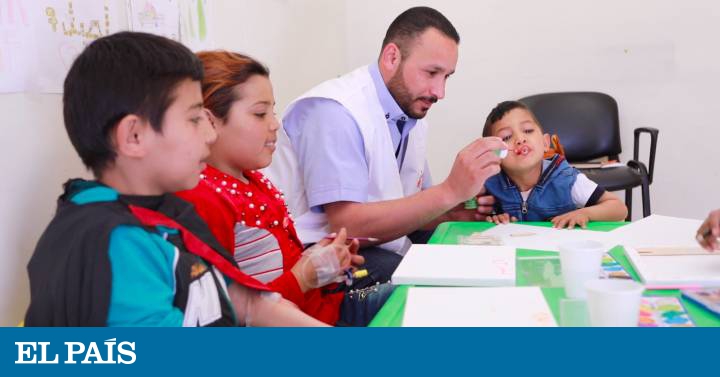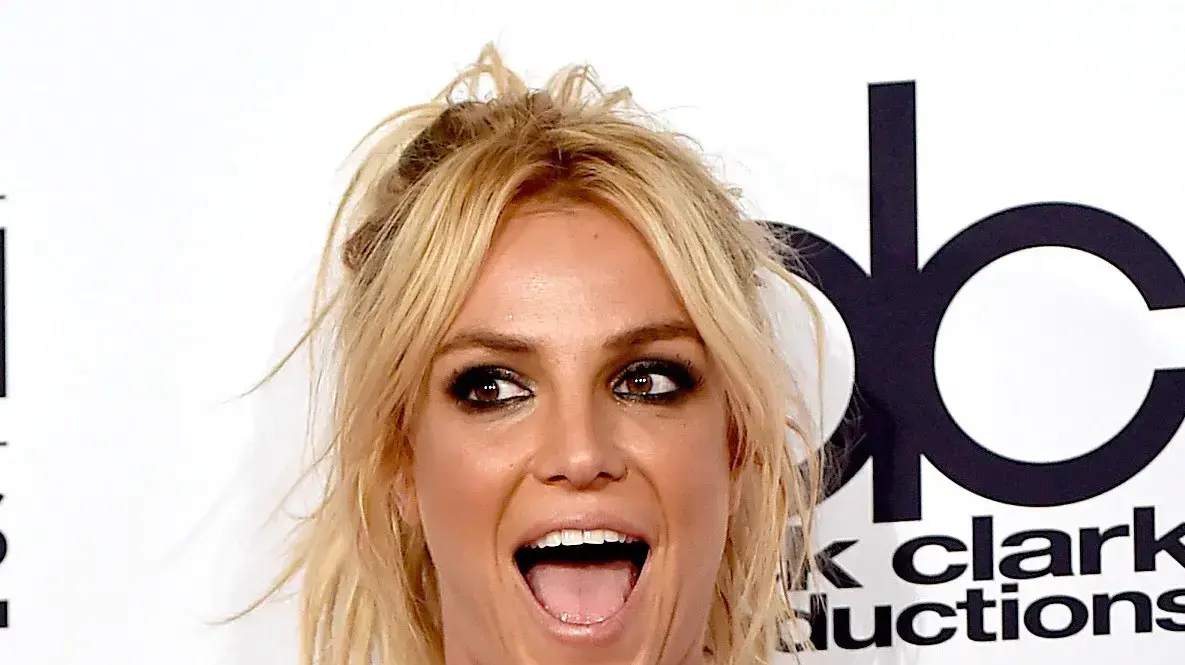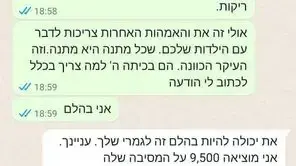"I just want to be like any other girl," Bouchra told me on the verge of tears in January 2018, when she became part of our program. This teenager, who is now 15 years old and has been coming to our hospital every three weeks since she was 13, has to undergo regular blood transfusions and take a lot of medications home. Every day of his life he has to take a total of 11 pills to avoid the side effects of transfusions and to survive the thalassemia that he suffers from.
MORE INFORMATION
- Gene therapy prevents thalassemia
- There is no money for Ahmad's heart
- This is an informal 360 degree refugee camp
I am a pediatric specialist in hematology and an oncologist. While studying medicine, I always knew that my goal was to work with Doctors Without Borders, travel from one mission to another around the world and help all those who cannot access medical services, either due to lack of economic means, due to the negligence or collapse of the States, for having been excluded from the health system for reasons of race, religion or political position or for having been affected by wars, epidemics or natural disasters.
After completing the specialty and having worked for several years in different hospitals, one day I heard a colleague speak about the MSF pediatric clinic in Zahle, eastern Lebanon. Soon I sent my application and a few weeks later they called me for the interview. More than two and a half years have passed since then and here I continue to work with them.
A few months passed from when I started working until we started admitting patients with thalassemia. I took advantage of that time to make sure the rooms were ready, painting and decorating all the walls in order to create a safer and more welcoming environment for children.
Thalassemia is an inherited disease that affects the blood and for which patients fail to produce their own red blood cells. Therefore, those red blood cells have to be administered to them through regular and frequent blood transfusions. It is a life-long disease that places a great burden on patients and their families, since they have to go to the hospital every two or three weeks. And if the transfusions stop being done or are not done on time, we begin to see physical changes in the faces and bodies of the children. Her bones begin to suffer and her heart weakens. In fact, children who do not receive transfusions suffer serious growth problems.
On the other hand, transfusions alone are not a panacea for our small patients, since they cause iron to deposit in the organs, causing damage to them, darkening of the skin, growth delays, heart failure, liver failure and a long list of more side effects. Therefore, to get rid of this iron overload, the child has to take a medicine called Iron Chelator every day, either orally or by subcutaneous injection, using a pump that gradually administers the medication with small punctures and that the child should carry with you for 14 hours a day. Thalassemia can be this serious if it is not treated properly and on time.
Because thalassemia is an inherited disease, we often have several members of the same family in the program. And that's just the case with Bouchra, the girl I was talking about at the beginning. She receives treatment in our clinic with one of her brothers and three of her cousins.
Thalassemia is an inherited disease that affects the blood and for which patients fail to produce their own red blood cells.
At first I remember that Bouchra was always very shy, did not say a single word and was always sad. It didn't do her any good to look different from other girls her age. And he hated having to visit the hospital so often, get so many injections, and have to take all those medications. She just wanted to live her life like any other child and her parents felt very bad for not being able to help her. As if that were not enough, to that logical frustration that Bouchra's parents felt to see their children like this, he was joined by an enormous concern for not being able to give them the treatment they needed, since it was very expensive and they could not afford it. Fortunately, today they have our support and receive this treatment for free.
In addition to Bouchra, her brother and her three cousins, today we have 74 other children in our cohort, most of them Syrian refugees. They do not have access to the state-provided care program, which is exclusively for Lebanese citizens, nor do they receive support from the United Nations Refugee Agency (UNHCR) for the treatment of their disease.
It makes me very happy when I see all these children happier every day. See how their quality of life has changed and see how relieved they and their families feel. They have become much braver and stronger. And they have removed the complexes when they see that there are many other children who are going through the same as them. In fact, Bouchra and all of our patients now know that there are millions of children with thalassemia worldwide, who are no weirdo for having this disease.
Our patients now know that there are millions of children with thalassemia, who are no weirdo for having this disease.
When I asked Bouchra a few days ago how she felt, she replied with a wide smile on her face: "I feel like I'm like all the other girls, Layal. That's how I feel."
Moments like that make all the days I spent studying at the university to be able to work one day on a project as beautiful as this one to be worthwhile. It is enormously gratifying to know that this project made the world a better place for Bouchra and her family, as well as that of all the children we treat. You can not imagine how beautiful it is to see how those walls that we once painted, this place that between all my colleagues and I made beautiful and pleasant, has become today the private playground of all these children, in the place where they regain the hope and the will to live they had lost.
Dr. Layal Issa is an oncologist and medical manager of the Thalassemia Day Center for Doctors Without Borders in Zahle, Lebanon.









